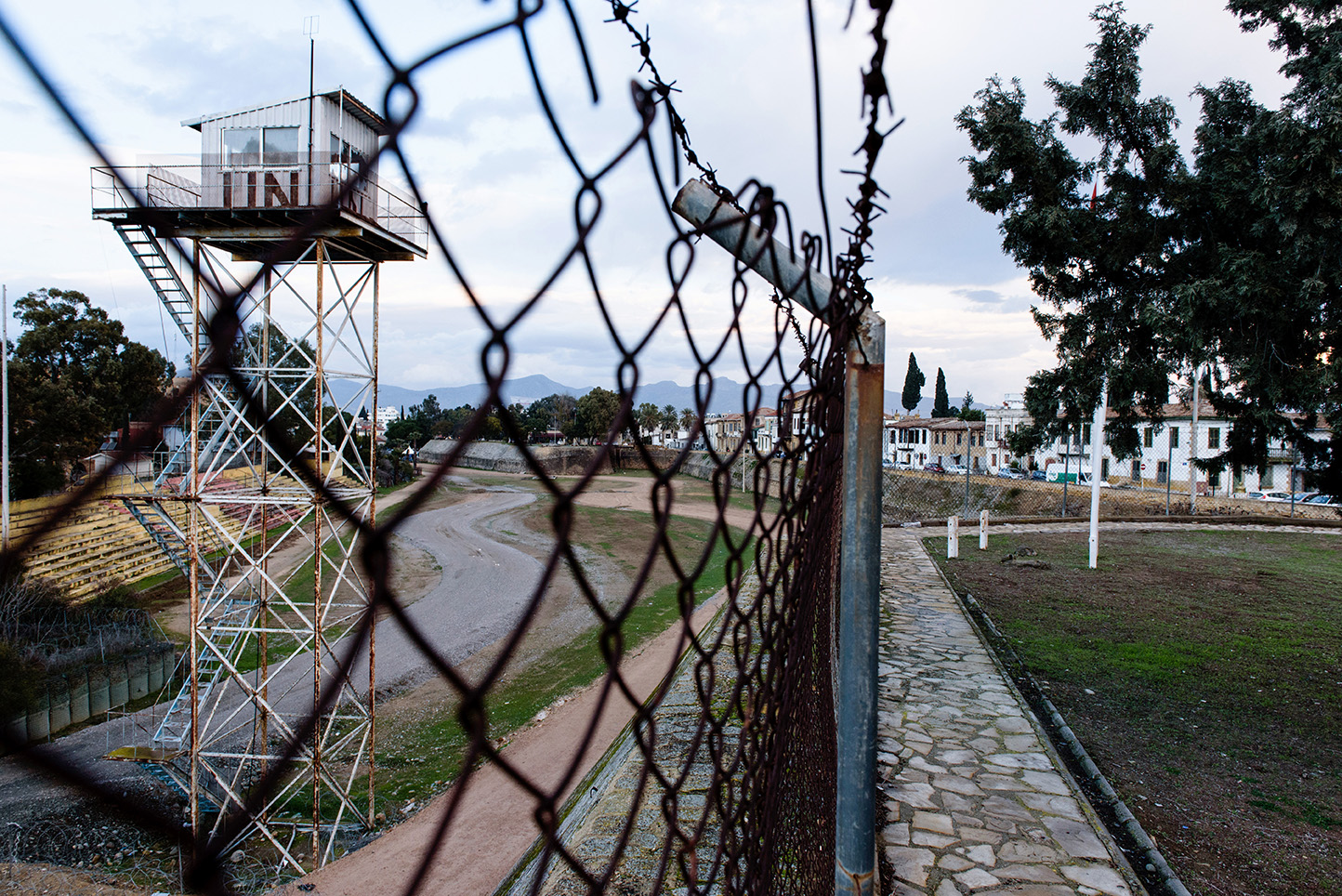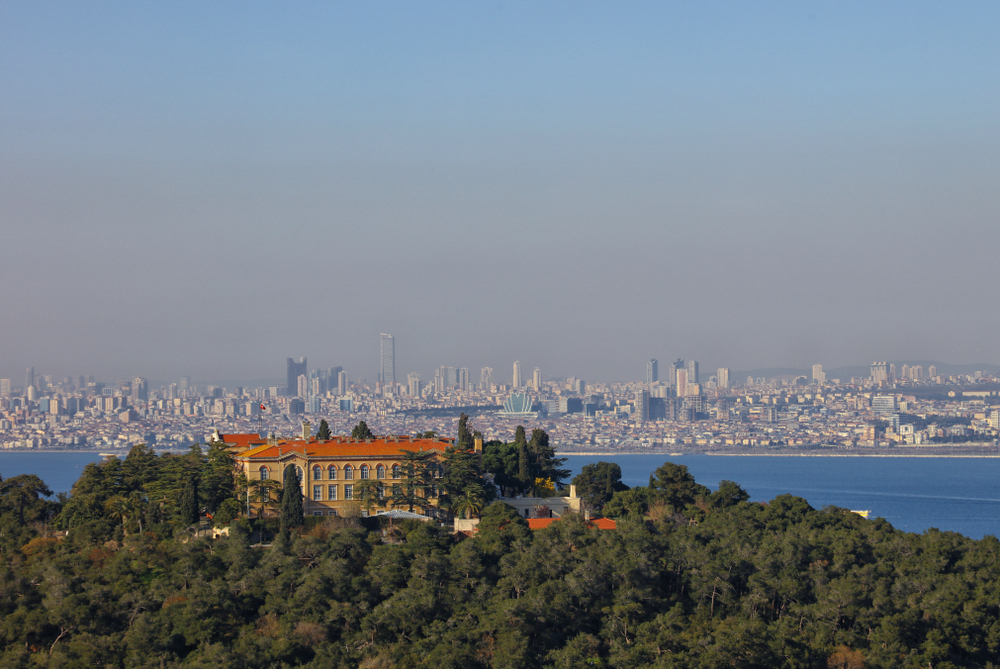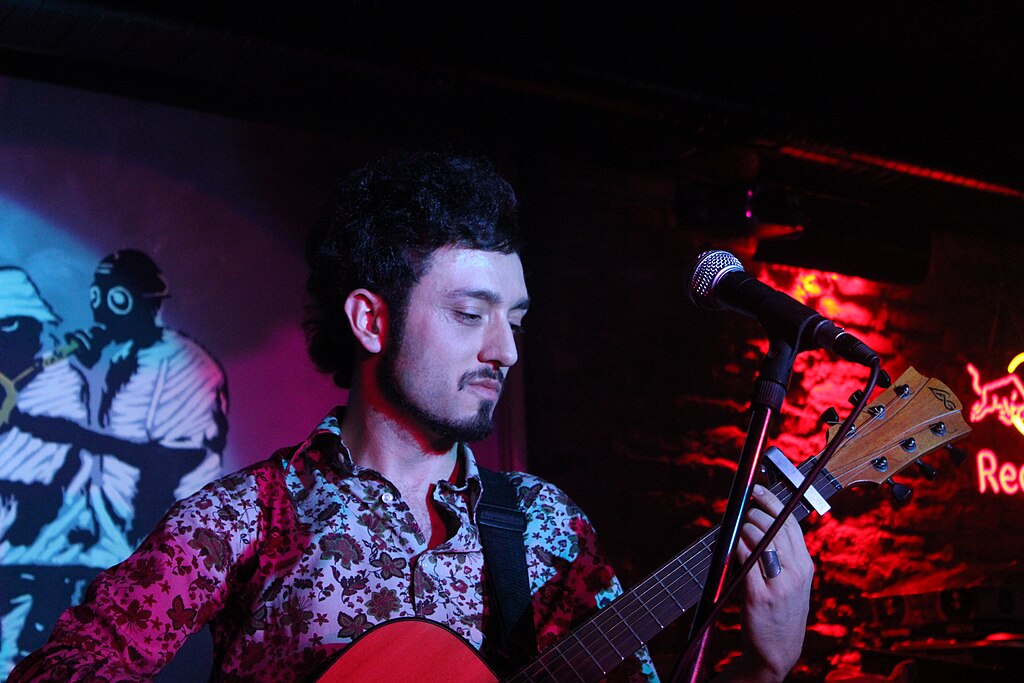ICTY, Djordjevic handed 27-year sentence
Former Serbian police chief Vlastimir Djordjevic was convicted of all five counts against him at the Hague, including responsibility for the murder of more than 700 ethnic Albanian civilians during the late Nineties conflict in Kosovo. From IWPR
Former Serbian police chief Vlastimir Djordjevic was convicted of all five counts against him at the Hague tribunal on February 23, including responsibility for the murder of more than 700 ethnic Albanian civilians during the late Nineties conflict in Kosovo.
Judges sentenced him to 27 years in prison, with credit for time served as he has been in custody since June 2007. Djordjevic was present in court for the judgement on February 23 but showed no emotion as it was read out.
In addition to murder, Djordjevic was found guilty of the deportation, forcible transfer and persecution of Kosovo Albanian civilians in 1999.
Reading aloud from the verdict, Presiding Judge Kevin Parker said that the accused was found to be responsible for the deportation of at least 200,000 Kosovo Albanians from 13 municipalities listed in the indictment. The judge noted that this estimate is “incomplete and very conservative and the true figure is likely to be very much higher”.
The judge described how beginning in late March 1999, Serbian police and armed forces would approach a town or village and shell the area using heavy weapons, “causing the Kosovo Albanian population to flee from their homes.
“Serbian forces, in most cases police, would then enter the area by foot, typically setting houses on fire and looting valuable.”
Afterwards, Serbian forces would separate the women and young children from the men, and order the women and children to leave for Albania, the judge continued. At that point, they would kill all the men, “usually having first divided them into smaller groups and taken each group to an isolated location”.
Judge Parker noted that the defence had claimed that civilians left Kosovo “for many reasons”, including fighting between the Kosovo Liberation Army, KLA, and Serbian forces, as well as NATO bombings, wartime conditions, and “deliberate population movements directed by the KLA”.
“On the contrary,” the judge said, “the evidence discloses…that the Kosovo Albanian people left Kosovo because they were specifically ordered to do so by Serbian forces, or because of the conduct of Serbian forces caused them to leave, in particular by shelling, shooting, killing and by burning houses and other buildings in the villages, towns and cities.”
He further noted that Serbian forces often seized “identification documents and vehicles licence plates” from Kosovo Albanians before they crossed the border out of Kosovo.
“Had this displacement of Kosovo Albanians been the consequence of NATO bombing or of fighting between the KLA and Serbian forces … it is not apparent why Kosovo Albanian refugees would be stripped of their identification documents,” Judge Parker stated.
With respect to the specific charges of murder in the indictment, he said the chamber found the accused responsible for the murder of “not less” than 724 Kosovo Albanians who were killed by Serbian forces, in many cases the police.
“In the large majority of cases the victims, including many women and children, were civilians, who were unarmed and not in any way participating in any form of armed conflict,” Judge Parker said.
In one instance, on March 26, 1999, Serbian police forced 114 Kosovo Albanian men and boys into a barn, the judge said.
“One of the men was disabled; his wheelchair was used by the police to block an entrance door,” the judge continued. “When all the men and boys were inside the barn, the police shot them with automatic rifles. The police then poured incendiary liquid over the bodies, placed maize on top of them and set the barn on fire.”
In another instance, also on March 26, 1999, Judge Parker said that “not less than 45 members” of one family – including 32 women and children – were killed by Serbian police. In another town, “Serbian forces lined up and shot 19 women and children, members of two families”, said the judge, noting that 14 of these individuals were killed.
“While five of the children survived the incident, they sustained severe injuries, many of them permanent,” Judge Parker continued. “These examples demonstrate that the conduct was not part of a genuine police operation to locate and arrest terrorists” as the defence had alleged.
Djordjevic did not personally commit these murders, the judge said, but they were committed by Serbian forces, “many of whom were police under his command”. At the time, the accused was chief of public security in the Serbian ministry of internal affairs, known as the MUP, where he was also an assistant minister.
In these positions, Djordjevic “had lawful powers and exercised effective control over the police in Kosovo, including the regular and reserve police”, Judge Parker said.
“The evidence reveals that the accused had detailed knowledge of events on the ground and played a key role in coordinating the work of MUP forces in Kosovo in 1998 and 1999,” the judge continued, noting that Djordjevic was “often present on the ground” in Kosovo and attended police meetings there.
Furthermore, Djordjevic was “aware of the criminal conduct of the police and other Serbian forces in Kosovo from his personal observations and from information provided by others”, Judge Parker said. “He was also aware that the Serb population in Kosovo had been armed by the army and the MUP to provide an additional Serbian force.”
The judge also noted that the defence had claimed throughout the trial that “there were no Serb paramilitary forces in Kosovo at the material time”.
The bench rejected this argument.
“It has been established by the evidence that there were Serbian paramilitary forces active in Kosovo in the indictment period, many serving with police units,” Judge Parker said.
Furthermore, he said, Djordjevic was “personally and directly involved in the engagement of one such unit, the Scorpions, into the MUP reserve force, in 1999”.
The judge noted that the Scorpions had been “directly involved” in the March 26, 1999 shooting of the 19 Kosovo Albanian women and children, of whom 14 were killed.
“The accused was informed of these killings almost immediately after they occurred,” said Judge Parker. “The unit was withdrawn from Kosovo but no effective investigation followed. The accused was aware of the lack of investigation but nonetheless authorised the re-deployment of members of the same unit back to Kosovo a few days later.”
In addition, the trial chamber found that Djordjevic was “instrumental” in police efforts to “conceal the murders of Kosovo Albanians”.
“The evidence confirms that from the second week of April 1999, on at least six occasions over a period of several weeks, trucks containing bodies of Kosovo Albanians killed by Serbian forces in Kosovo arrived at the 13 Maj SAJ Centre in Batajnica near Belgrade,” Judge Parker said.
This centre was controlled by the Serbian police and over 400 kilometres from the killing sites in Kosovo, the judge continued. In 2001, the remains of 744 people were exhumed from the centre in Batajnica, and 84 from Lake Perucac in Serbia, he said.
“The accused played a leading role in MUP efforts to conceal these murders,” Judge Parker said.
Djordjevic “gave instructions for the clandestine transportation of bodies” as well as “specific orders to preclude judicial investigations”.
“The chamber has found that the transportation of bodies from Kosovo for clandestine burial in mass graves in MUP grounds was undertaken as part of a coordinated operation to remove evidence of crimes committed by Serbian forces against Kosovo Albanians in Kosovo,” Judge Parker said.
Furthermore, the judge said, “despite being aware of crimes committed by MUP forces in Kosovo, at no time during the indictment period, or thereafter…did the accused take any measures to ensure the investigation of the crimes or the punishment of those involved in their commission”.
Djordjevic worked with other senior members of the Serbian leadership, including ex-Serbian president Slobodan Milosevic, in a joint criminal enterprise “to change the ethnic balance in Kosovo”, Judge Parker said.
“The chamber is satisfied that the accused’s conduct … contributed significantly to the campaign of terror and extreme violence by Serbian forces against Kosovo Albanians, which had the purpose of changing the demographic composition in Kosovo,” Judge Parker concluded.
Djordjevic’s trial began in January 2009 and heard the testimony of 140 witnesses before concluding last July. He is the eighth former senior Serbian official to be tried – and the sixth to be convicted – for crimes committed during the Kosovo conflict.
Rachel Irwin is an IWPR reporter in The Hague. This article was originally published by IWPR, TRI Issue 681, 25 Feb 11
Tag: Hague Tribunal
ICTY, Djordjevic handed 27-year sentence
Former Serbian police chief Vlastimir Djordjevic was convicted of all five counts against him at the Hague, including responsibility for the murder of more than 700 ethnic Albanian civilians during the late Nineties conflict in Kosovo. From IWPR
Former Serbian police chief Vlastimir Djordjevic was convicted of all five counts against him at the Hague tribunal on February 23, including responsibility for the murder of more than 700 ethnic Albanian civilians during the late Nineties conflict in Kosovo.
Judges sentenced him to 27 years in prison, with credit for time served as he has been in custody since June 2007. Djordjevic was present in court for the judgement on February 23 but showed no emotion as it was read out.
In addition to murder, Djordjevic was found guilty of the deportation, forcible transfer and persecution of Kosovo Albanian civilians in 1999.
Reading aloud from the verdict, Presiding Judge Kevin Parker said that the accused was found to be responsible for the deportation of at least 200,000 Kosovo Albanians from 13 municipalities listed in the indictment. The judge noted that this estimate is “incomplete and very conservative and the true figure is likely to be very much higher”.
The judge described how beginning in late March 1999, Serbian police and armed forces would approach a town or village and shell the area using heavy weapons, “causing the Kosovo Albanian population to flee from their homes.
“Serbian forces, in most cases police, would then enter the area by foot, typically setting houses on fire and looting valuable.”
Afterwards, Serbian forces would separate the women and young children from the men, and order the women and children to leave for Albania, the judge continued. At that point, they would kill all the men, “usually having first divided them into smaller groups and taken each group to an isolated location”.
Judge Parker noted that the defence had claimed that civilians left Kosovo “for many reasons”, including fighting between the Kosovo Liberation Army, KLA, and Serbian forces, as well as NATO bombings, wartime conditions, and “deliberate population movements directed by the KLA”.
“On the contrary,” the judge said, “the evidence discloses…that the Kosovo Albanian people left Kosovo because they were specifically ordered to do so by Serbian forces, or because of the conduct of Serbian forces caused them to leave, in particular by shelling, shooting, killing and by burning houses and other buildings in the villages, towns and cities.”
He further noted that Serbian forces often seized “identification documents and vehicles licence plates” from Kosovo Albanians before they crossed the border out of Kosovo.
“Had this displacement of Kosovo Albanians been the consequence of NATO bombing or of fighting between the KLA and Serbian forces … it is not apparent why Kosovo Albanian refugees would be stripped of their identification documents,” Judge Parker stated.
With respect to the specific charges of murder in the indictment, he said the chamber found the accused responsible for the murder of “not less” than 724 Kosovo Albanians who were killed by Serbian forces, in many cases the police.
“In the large majority of cases the victims, including many women and children, were civilians, who were unarmed and not in any way participating in any form of armed conflict,” Judge Parker said.
In one instance, on March 26, 1999, Serbian police forced 114 Kosovo Albanian men and boys into a barn, the judge said.
“One of the men was disabled; his wheelchair was used by the police to block an entrance door,” the judge continued. “When all the men and boys were inside the barn, the police shot them with automatic rifles. The police then poured incendiary liquid over the bodies, placed maize on top of them and set the barn on fire.”
In another instance, also on March 26, 1999, Judge Parker said that “not less than 45 members” of one family – including 32 women and children – were killed by Serbian police. In another town, “Serbian forces lined up and shot 19 women and children, members of two families”, said the judge, noting that 14 of these individuals were killed.
“While five of the children survived the incident, they sustained severe injuries, many of them permanent,” Judge Parker continued. “These examples demonstrate that the conduct was not part of a genuine police operation to locate and arrest terrorists” as the defence had alleged.
Djordjevic did not personally commit these murders, the judge said, but they were committed by Serbian forces, “many of whom were police under his command”. At the time, the accused was chief of public security in the Serbian ministry of internal affairs, known as the MUP, where he was also an assistant minister.
In these positions, Djordjevic “had lawful powers and exercised effective control over the police in Kosovo, including the regular and reserve police”, Judge Parker said.
“The evidence reveals that the accused had detailed knowledge of events on the ground and played a key role in coordinating the work of MUP forces in Kosovo in 1998 and 1999,” the judge continued, noting that Djordjevic was “often present on the ground” in Kosovo and attended police meetings there.
Furthermore, Djordjevic was “aware of the criminal conduct of the police and other Serbian forces in Kosovo from his personal observations and from information provided by others”, Judge Parker said. “He was also aware that the Serb population in Kosovo had been armed by the army and the MUP to provide an additional Serbian force.”
The judge also noted that the defence had claimed throughout the trial that “there were no Serb paramilitary forces in Kosovo at the material time”.
The bench rejected this argument.
“It has been established by the evidence that there were Serbian paramilitary forces active in Kosovo in the indictment period, many serving with police units,” Judge Parker said.
Furthermore, he said, Djordjevic was “personally and directly involved in the engagement of one such unit, the Scorpions, into the MUP reserve force, in 1999”.
The judge noted that the Scorpions had been “directly involved” in the March 26, 1999 shooting of the 19 Kosovo Albanian women and children, of whom 14 were killed.
“The accused was informed of these killings almost immediately after they occurred,” said Judge Parker. “The unit was withdrawn from Kosovo but no effective investigation followed. The accused was aware of the lack of investigation but nonetheless authorised the re-deployment of members of the same unit back to Kosovo a few days later.”
In addition, the trial chamber found that Djordjevic was “instrumental” in police efforts to “conceal the murders of Kosovo Albanians”.
“The evidence confirms that from the second week of April 1999, on at least six occasions over a period of several weeks, trucks containing bodies of Kosovo Albanians killed by Serbian forces in Kosovo arrived at the 13 Maj SAJ Centre in Batajnica near Belgrade,” Judge Parker said.
This centre was controlled by the Serbian police and over 400 kilometres from the killing sites in Kosovo, the judge continued. In 2001, the remains of 744 people were exhumed from the centre in Batajnica, and 84 from Lake Perucac in Serbia, he said.
“The accused played a leading role in MUP efforts to conceal these murders,” Judge Parker said.
Djordjevic “gave instructions for the clandestine transportation of bodies” as well as “specific orders to preclude judicial investigations”.
“The chamber has found that the transportation of bodies from Kosovo for clandestine burial in mass graves in MUP grounds was undertaken as part of a coordinated operation to remove evidence of crimes committed by Serbian forces against Kosovo Albanians in Kosovo,” Judge Parker said.
Furthermore, the judge said, “despite being aware of crimes committed by MUP forces in Kosovo, at no time during the indictment period, or thereafter…did the accused take any measures to ensure the investigation of the crimes or the punishment of those involved in their commission”.
Djordjevic worked with other senior members of the Serbian leadership, including ex-Serbian president Slobodan Milosevic, in a joint criminal enterprise “to change the ethnic balance in Kosovo”, Judge Parker said.
“The chamber is satisfied that the accused’s conduct … contributed significantly to the campaign of terror and extreme violence by Serbian forces against Kosovo Albanians, which had the purpose of changing the demographic composition in Kosovo,” Judge Parker concluded.
Djordjevic’s trial began in January 2009 and heard the testimony of 140 witnesses before concluding last July. He is the eighth former senior Serbian official to be tried – and the sixth to be convicted – for crimes committed during the Kosovo conflict.
Rachel Irwin is an IWPR reporter in The Hague. This article was originally published by IWPR, TRI Issue 681, 25 Feb 11
Tag: Hague Tribunal










